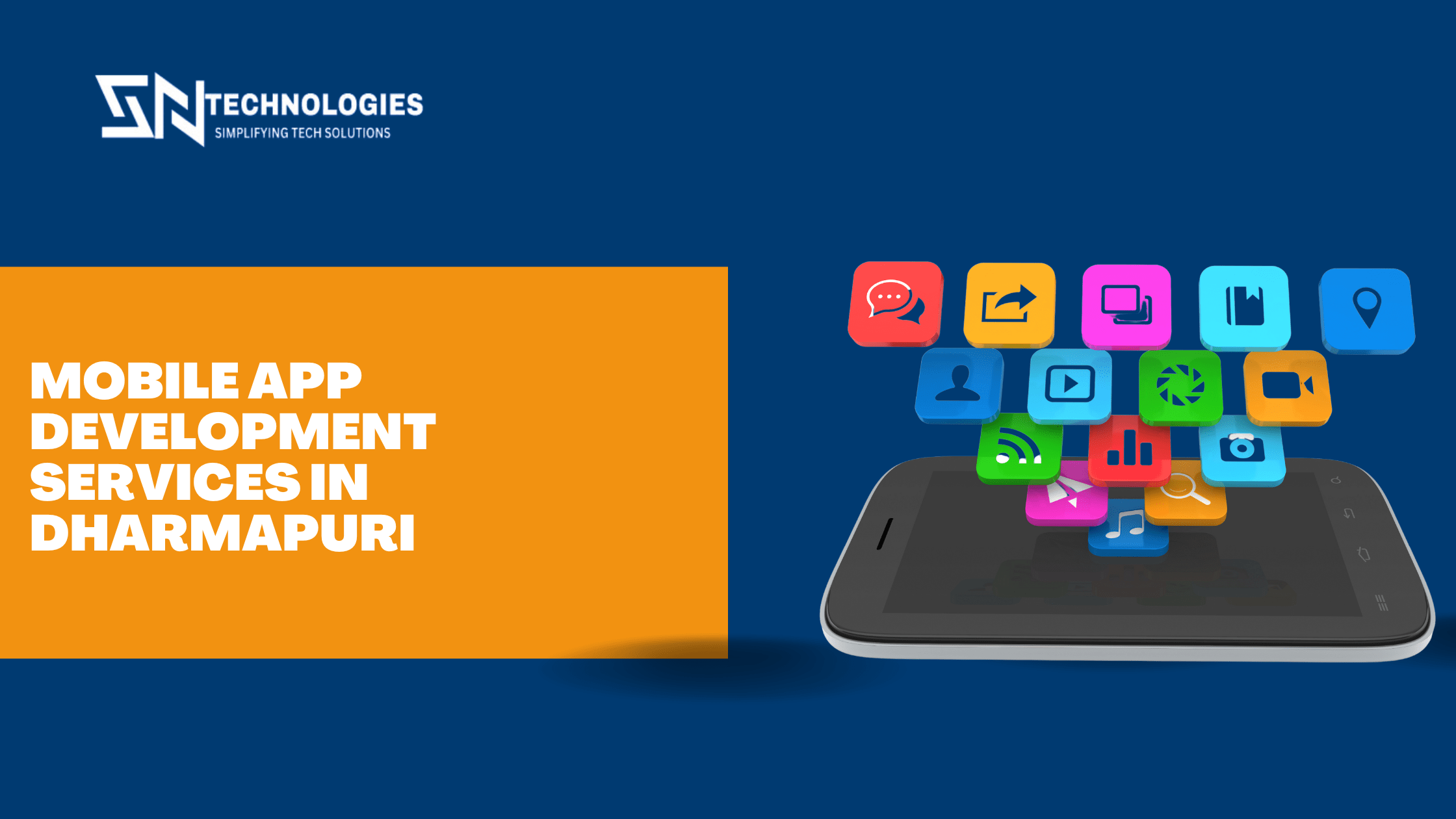As mobile apps become more embedded in users’ lives, security is no longer optional—it’s a necessity. From financial transactions and health data to real-time location sharing, mobile applications handle vast amounts of sensitive user information. If not secured properly, apps can become easy targets for hackers.
At SN Technologies’ trusted Mobile App Development Services in Dharmapuri, we believe mobile app security should be integrated from day one. Here’s how businesses and developers can ensure robust protection throughout the mobile app development process.

1. Understand Platform-Specific Vulnerabilities
Every mobile app is distributed through a platform like the Google Play Store or Apple App Store, each with its own security guidelines and permission frameworks. Hackers often exploit communication gaps between apps and platforms to intercept data.
Action:
Adhere to the platform’s best practices for permissions, sandboxing, and keychain usage. Validate app certificates and use platform-based encryption where available.
2. Start with Strong Planning and Research
Security begins with a clear understanding of vulnerabilities and user expectations. Research modern mobile threats, follow global standards like ISO 27001 and PCI-DSS, and study target audience behavior to design secure, user-friendly apps.
Action:
Perform threat modeling during app design.
Integrate user-specific security features based on usage patterns.
Stay updated with evolving cybersecurity regulations and compliance frameworks.
3. Integrate DevSecOps
DevSecOps is the practice of embedding security at every stage of the app development lifecycle. By merging development, operations, and security teams, you reduce post-release vulnerabilities and accelerate incident response.
Action:
Automate security testing during CI/CD pipelines.
Use secure code repositories and implement static code analysis.
Ensure patch management and vulnerability updates happen regularly.
4. Encrypt the Source Code
According to industry studies, over 80% of mobile app vulnerabilities originate from poorly written source code. Developers must encode, obfuscate, and encrypt source code to prevent reverse engineering and exploitation.
Action:
Use code obfuscation tools.
Implement runtime protection and signature verification.
Digitally sign code to verify its authenticity and integrity.
5. Strengthen Authentication & Authorization
Weak or single-layer authentication makes it easier for attackers to impersonate users. Poorly implemented login systems are among the most common app vulnerabilities.
Action:
Use multi-factor authentication (MFA).
Implement biometric security options like fingerprint or facial recognition.
Secure session management using encrypted tokens or time-based credentials.
6. Secure Communication Channels
Apps often communicate through public networks, exposing them to man-in-the-middle (MITM) attacks, especially on unsecured Wi-Fi.
Action:
Enforce HTTPS for all server communication.
Use secure VPNs or SSL pinning to prevent interception.
Regularly test APIs for exposure and misconfigurations.
7. Protect Back-End Systems
Mobile app security isn’t just about the front-end. With Mobile App Development Services in Dharmapuri, we harden your servers and lock down your APIs—because if your back‑end is compromised, attackers can gain full access to your app data.
Action:
Limit data access using role-based permissions.
Apply containerization for data segregation.
Encrypt all sensitive server-side data during storage and transmission.
8. Ensure Safe Data Storage
With expert Mobile App Development Services in Dharmapuri, we ensure your app follows strict security protocols—avoiding insecure storage like:
Application logs
Clipboard or keyboard cache
IPC mechanisms
Unsecured external storage
Action:
Store only essential data.
Use encrypted local databases (like SQLCipher) and secure preferences.

9. Perform Regular Security Testing
At SN Technologies’ Mobile App Development services in Dharmapuri, we don’t stop testing after the app is live. Many breaches occur post-launch due to missed vulnerabilities and unpatched bugs.
Action:
Conduct penetration testing regularly.
Simulate attacks using device emulators and cloud environments.
Continuously monitor for new threats and address them with timely updates.
Frequently Asked Questions : Mobile App Development Services in Dharmapuri
1.Should security testing be done before or after launching the app?
Both. Security testing should be part of pre-launch testing (pen testing, vulnerability scans), and ongoing post-launch as new threats emerge. Regular updates and patching are critical.
2.How should sensitive data be stored on mobile devices?
Sensitive data should be stored using encrypted local databases, such as SQLCipher or Android Keystore. Avoid storing sensitive info in logs, clipboard, or external storage.

